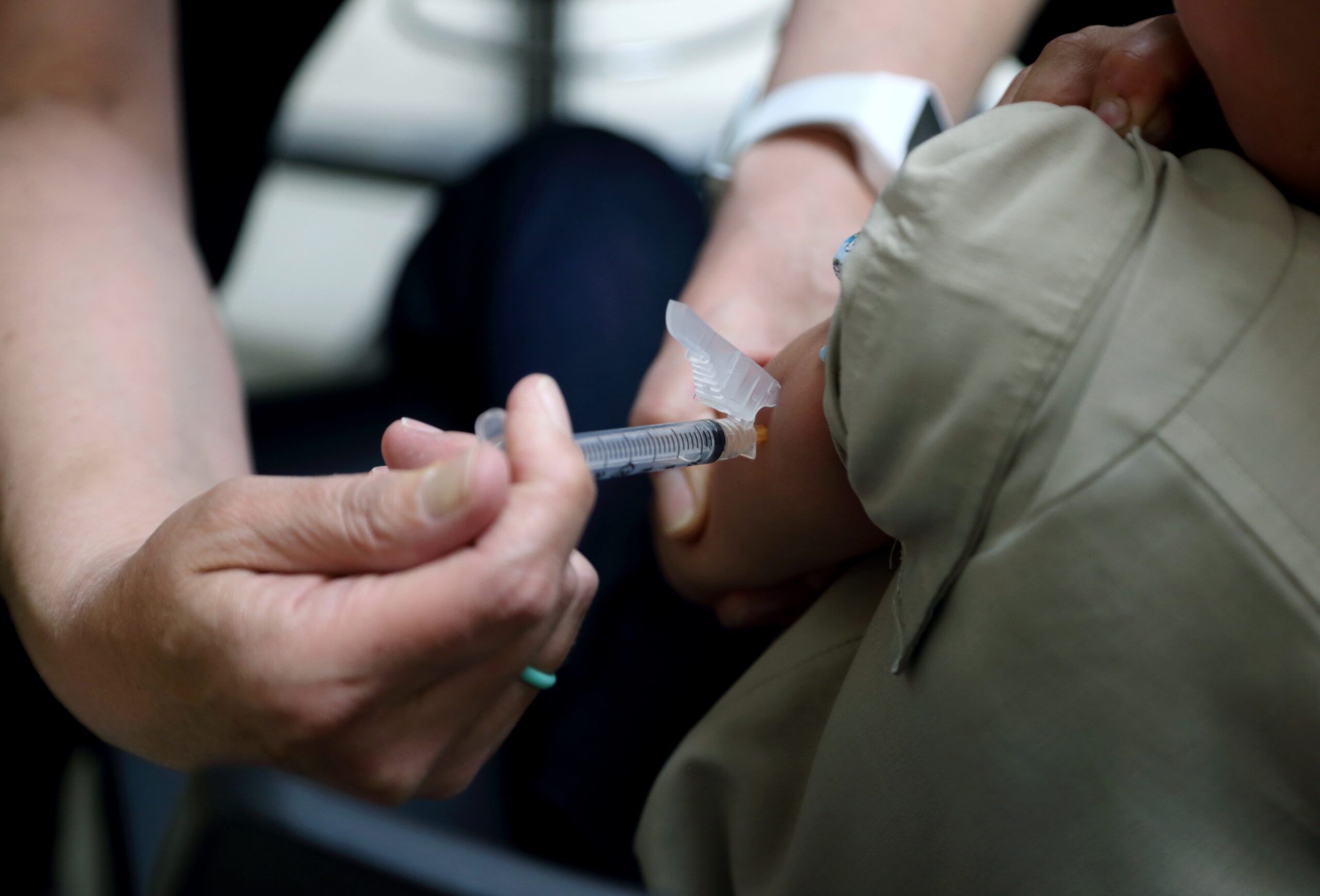A follow-up study of an experimental coronavirus vaccine produced by Oxford University and the British pharmaceutical company AstraZeneca will take place at UW Health University Hospital.
The Madison hospital announced Monday that it hopes to enroll between 1,500-2,000 participants over the next eight weeks for a phase 3 trial to test the vaccine and see whether it can prevent COVID-19.
A preliminary, smaller study of the vaccine AZD1222 indicated it triggered two immune responses: antibodies and T-cells.
News with a little more humanity
WPR’s “Wisconsin Today” newsletter keeps you connected to the state you love without feeling overwhelmed. No paywall. No agenda. No corporate filter.
The two-pronged approach could be helpful because it’s uncertain how long antibodies might last.
“So this vaccine is able to attack the virus in two different ways: on the cellular level with it going after the virus, and with the antibodies to neutralize it,” explained Dr. William Hartman, assistant professor of anesthesiology at the UW School of Medicine and Public Health, who leads the vaccine trial in Madison.
The vaccine is one of three leading candidates being tried in humans for randomized, double-blinded, placebo-controlled clinical trials funded by the U.S. government under Operation Warp Speed. Across the globe, there are 24 coronavirus vaccine candidates currently in clinical trial, according to the World Health Organization.
“It’s a big chance for our community to reach out and get us closer to normal living,” said Hartman.
University Hospital is one of 100 testing sites across the U.S. for this vaccine. Up to 30,000 people are involved in the national clinical trial.
Results would first be evaluated by AstraZeneca and then the U.S. Food and Drug Administration to see if it’s at least 50 percent effective against COVID-19.
Participants in the UW trial will get either a placebo or two injections of the experimental vaccine.
Hartman encouraged people from minority communities to participate.
In Wisconsin and across the U.S., COVID-19 has disproportionately affected people of color, resulting in more hospitalizations and higher death rates. Yet clinical trials of treatments and vaccines for COVID-19 have had difficulty enrolling populations that reflect society, according to an article published in the New England Journal of Medicine.
Wisconsin Public Radio, © Copyright 2025, Board of Regents of the University of Wisconsin System and Wisconsin Educational Communications Board.






